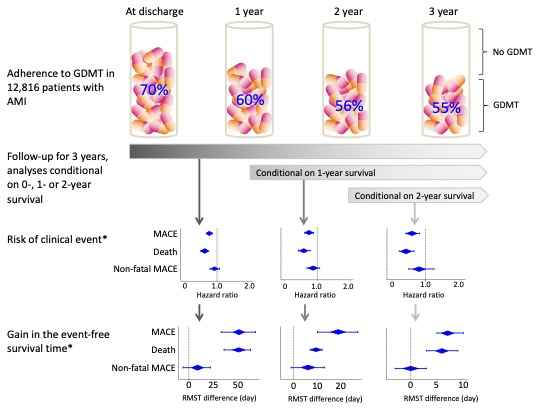Lots of interesting abstracts and cases were submitted for TCTAP 2023. Below are the accepted ones after a thorough review by our official reviewers. Don’t miss the opportunity to expand your knowledge and interact with authors as well as virtual participants by sharing your opinion in the comment section!
TCTAP A-006
Adherence to Guideline-Directed Medical Therapy and 3-Year Clinical Outcome Following Acute Myocardial Infarction
By Dahee Hyun, Jin Ho Choi, Chang-Hwan Yoon, Kwang Soo Cha, Seok Kyu Oh, In-Whan Seong, Myung-Ho Jeong, Seunghwa Lee
Presenter
Authors
Affiliation
Adherence to Guideline-Directed Medical Therapy and 3-Year Clinical Outcome Following Acute Myocardial Infarction
Dahee Hyun1, Jin Ho Choi2, Chang-Hwan Yoon3, Kwang Soo Cha4, Seok Kyu Oh5, In-Whan Seong6, Myung-Ho Jeong7, Seunghwa Lee8
Sungkyunkwan University, Korea (Republic of)1, Samsung Medical Center, Korea (Republic of)2, Seoul National University Bundang Hospital, Korea (Republic of)3, Pusan National University Hospital, Korea (Republic of)4, Won Kwang University Hospital, Korea (Republic of)5, Chungnam National University Hospital, Korea (Republic of)6, Chonnam National University Hospital, Korea (Republic of)7, Wiltse Memorial Hospital, Korea (Republic of)8
Background
Methods
Results
Conclusion



